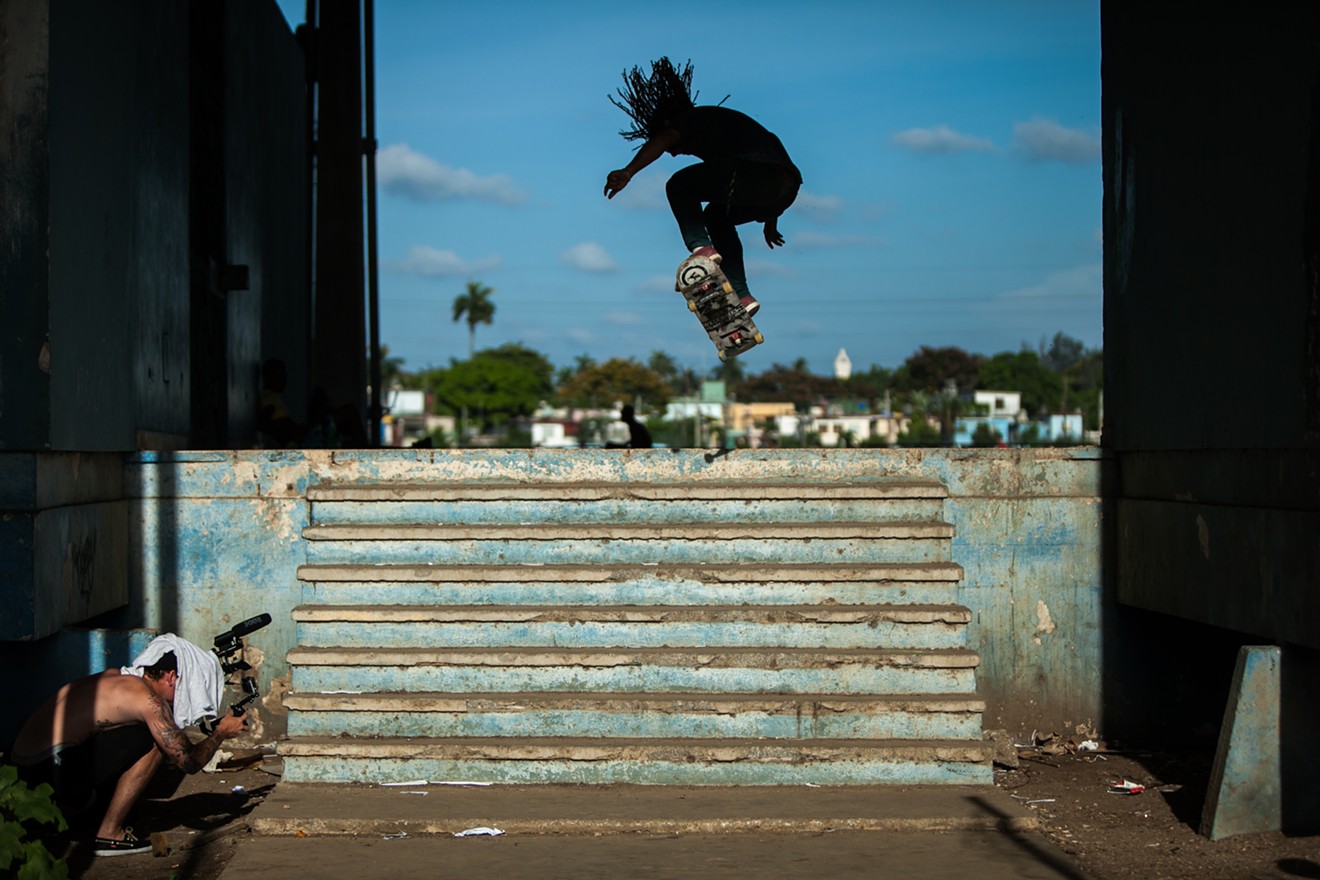Skateboarding came to Cuba in the early '80s, when Soviet soldiers, doctors,
Today the government still doesn’t recognize skateboarding as a sport. Boards still aren’t sold on the island. But the skate culture has only continued to grow, with hundreds now riding through city streets and flipping in Havana's one crumbling skate park.
Havana Skate Days, a new documentary screening tonight, March 1, at O Cinema in Wynwood, follows this new generation of skaters as they try to legitimize the sport they love and carve out a place for themselves in their changing country. From the time they first heard about the skating culture in Cuba, filmmakers Kristofer Ríos and Julian Moura-Busquets say they were struck by the image.
“You have these skaters that kind of defy all these laws on the street, skating at their own speed, making a lot of noise, being in the streets challenging this really old city,” says Moura-Busquets, who himself picked up skating to trail the group. “Just the contrast was really stark and really cool because you have this city that’s trapped in time; then you have this superprogressive sport.”
Three years of filming saw what looked to be major changes for the island. In 2014, the United States and Cuba announced restored diplomatic ties, and in 2016, former Cuban leader Fidel Castro died after decades in power. At a ground level, though, the skaters featured in Havana Skate Days didn’t see much of a direct effect.
Their efforts to persuade the body that governs sports in Cuba, INDER, to take skateboarding seriously were met with lackluster interest, even as the sport has been recognized at the Olympic level. And attempts by U.S.-based nonprofits such as Amigo Skate and Cuba Skate to build a new park have been delayed by bureaucracy. The film captures the frustration of young skaters who love their country but feel hemmed in by its limits.
“They seem to want more,” Ríos says. “They seem to want to connect to the outside world; they seem to want to transform their situation. And that, to me, is what was really exciting and what I felt was the thing that made it so compelling.”
In this way, the documentary, which also sees several young skaters leave the island in search of more, is about more than skateboarding.
“The way I always said it, and still say it, is that it’s not really a film about skateboarding,” Ríos says. “It’s a film about young people in Cuba right now and the way they’re navigating all the things that are changing.”
Havana Skate Days. 8 p.m. Thursday, March 1, at O Cinema Wynwood, 90 NW 29th St., Miami; 305-571-9970; o-cinema.org. Opening reception featuring Ríos begins at 7 p.m. Tickets cost $12 via o-cinema.org.














